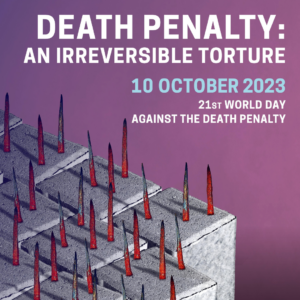
Photo: Cayman Marl Road
Cayman Marl Road - Privy Council refuses secret hearings in Cayman prisoner transfer case
- DPP in the Media
- 3 Mar 2023
This article was originally published in Cayman Marl Road news, 3 March 2023.
The Judicial Committee of the Privy Council (JCPC) has refused to allow the prison transfer hearing for murder convict Justin Ramoon to be a closed material hearing.
The Governor and Director of Prison Services convinced the Court of Appeal that a Closed Material Procedure (CMP) should be held, allowing the court to consider evidence that was withheld from Mr. Ramoon and his brother, excluding them from the hearings. However, following a hearing last November during a historic sitting in the Cayman Islands, the Privy Council has ruled that the hearing not be a CMP.
Responding to the judgment, Prathna Bodden of Samson Law said:
“This is a significant development in Mr Ramoon’s long-running battle challenging the decision that he serves his sentence in the United Kingdom. We welcome the Privy Council’s ruling that the government cannot hold secret hearings without express authority. This is a victory for open justice and fairness in the courts of the Cayman Islands.”
In 2016, Justin Ramoon was convicted of murder and possession of an unlicensed firearm and was subsequently sentenced to life imprisonment. In 2017, the Secretary of State for Foreign and Commonwealth Affairs (UK) authorized his transfer from the Cayman Islands to a prison in the UK, a country with which he had no ties, under the ‘Colonial Prisoners Act 1884’.
Ramoon’s lawyer said this has seriously impacted Mr. Ramoon’s ability to have a close relationship with his family, including his young son.
Mr. Ramoon and his brother brought a judicial review of the decision of the Cayman Islands Governor to permit his transfer to the United Kingdom. During these proceedings, the Governor of the Cayman Islands and the Director of Prisons (the Respondents) refused to disclose relevant evidence, claiming that it would undermine national security to do so.
A Closed Material Procedure is a procedure by which a government or public body is permitted to rely on evidence that is not disclosed to the other party to litigation, on public interest or national security grounds. A court will consider this evidence in “closed” sessions where the individual and their legal representatives are excluded from the hearing. In such circumstances, the court will appoint a “special advocate,” an independent lawyer who does not represent the individual but who is permitted to see and comment on the closed material independently from the public body.
Appealing to the Privy Council, Ramoon argued that there was no legal basis for the courts to hold a CMP and that the resulting proceedings would be inherently unfair. During the appeal, the Respondents argued that if the Grand Court in the Cayman Islands could not hold a CMP, then Mr. Ramoon’s claim should be dismissed. The Governor argued it would be unfair for the court not to see the evidence that they refused to share with Mr. Ramoon.
Today, the Privy Council determined that it is “…simply not open to [the courts] to invent a CMP for the Cayman Islands.” The Board explained that due to the inherent unfairness of CMPs to individuals, Parliament is better placed to “…assess the policy considerations relating to the necessity for such a procedure…and to make detailed procedural rules to regulate the procedure.”
Dismissing the Respondents’ request to strike out the claim, the Board held that the claim should now proceed to trial solely on the basis of the material which the Respondents were willing to disclose.
Saul Lehrfreund, from the Death Penalty Project, “The Privy Council’s ruling that CMPs cannot take place without proper guidelines and defined procedure upholds important fair trial rights. Excluding individuals from trials should only ever be a last resort. We are pleased that this decision will create a fairer and more transparent justice system.”



















